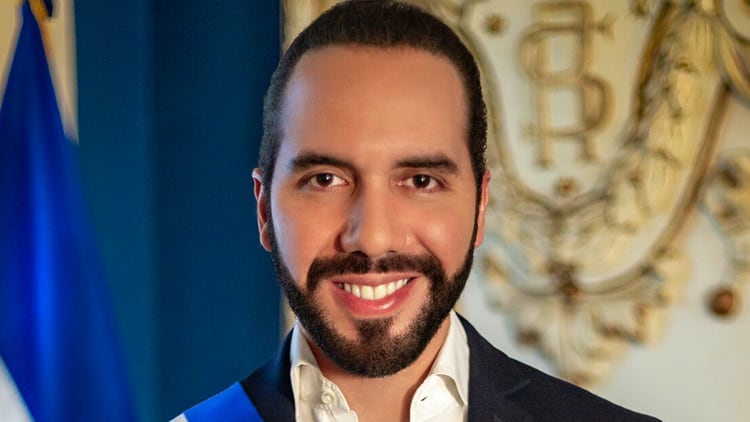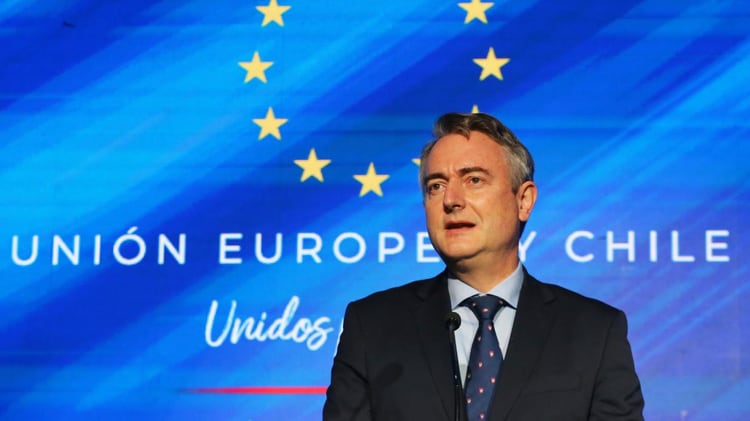The Diplomat
The Spanish government has avoided congratulating Nayib Bukele on his re-election as president of El Salvador, following the elections held on 4 February.
In a brief communiqué issued yesterday afternoon by the Ministry of Foreign Affairs, nine days after the results of the elections in the Central American country were announced, the Spanish government said that it “wishes the Salvadoran people success in this stage following the presidential elections”.
Other countries, such as the United States and the European Union, through its External Action Service, did congratulate the Salvadoran president.
Spain has opted to repeat, to a certain extent, the formula used after the elections in Argentina, in which a communiqué, also from the Ministry of Foreign Affairs, avoided congratulating the new president, Javier Milei, and sent its wishes of “success to Argentina in this new stage”.
Bukele, who was re-elected with 82.66% of the votes, was not mentioned at any point in the communiqué issued yesterday after five years in power, during which time he applied a hardline policy against the gangs operating in El Salvador. Bukele’s actions, which imprisoned members of the gangs, the feared maras, and restored security to the country, have nevertheless been heavily criticised by human rights organisations, which consider that El Salvador has entered an authoritarian drift.
In his first speech after his re-election, Bukele attacked Spain, stating that “they do not intend to be its lackeys”, and referring to the system of government in our country, he said that they respect the monarchy but do not intend to “submit to it”. “We respect you, we respect your hereditary monarchy, what we are not going to be is your lackeys,” he stressed.
The Salvadoran president also strongly criticised the special envoys of foreign media, especially from Spain, but also the United Nations and the Organisation of American States (OAS), as well as non-governmental organisations (NGOs) and human rights activists who have criticised his administration.
Bukele also commented on this intervention: “A Spanish journalist said to me, ‘Why do you want to dismantle democracy? And I said to him: ‘But what kind of democracy are you talking about? Democracy means the power of the people, and if Salvadorans want this, why is a Spanish journalist going to come and tell us what Salvadorans have to do?
According to the Central American leader, the concept of democracy that this journalist spoke to him about was “what his bosses in Spain tell him. But that is not democracy; that would be colony, imperialism, elitism, plutocracy, you can call it whatever you want, but it is not called democracy”, he replied.
In 2019, when he was first elected, the Spanish government did congratulate Bukele and sent the then president of the Senate, Manuel Cruz, to his inauguration. However, throughout these five years, high-level exchanges between the two countries have been very scarce. In April 2021, the Salvadoran Minister of Foreign Affairs, Alexandra Hill Tinoco, travelled to Madrid to hold the first Bilateral Consultations meeting with her then Spanish counterpart, Arancha González Laya, in the framework of the Memorandum of Understanding between the two ministries. And in August last year, the Vice-President of El Salvador, Félix Ulloa, met with His Majesty the King in Asunción, where they coincided for the inauguration of the new President of Paraguay, Santiago Peña.
The Foreign Ministry communiqué adds, in any case, that “Spain and El Salvador are united by close fraternal, cultural and historical human ties that should be deepened for the benefit of both peoples”.







